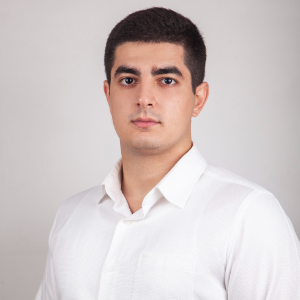Title : Cardiometry: A new fundamental scientific field in cardiology
Abstract:
Cardiometry is a new basic science that will make the diagnosis of cardiovascular pathology easier, cheaper and faster. New perspectives in the study of the hemodynamics of the organism. Cardiometry gives us the opportunity to see the functioning of our body from a different perspective, allowing us to put forward new theories and methods for more effective treatment of patients. This method is easy to use and accessible to everyone, as the equipment is inexpensive and takes about a week to learn. Mathematics, as the most precise science, is the basis of cardiometry, which is its main advantage. With the help of mathematical formulas, we have begun to study hemodynamics from a new perspective. We can determine the volume of blood that fills or expels the heart in any phase of its work, and the vascular response to it. We also have access to non-invasive diagnostic methods, such as determining lactate, oxygen, phosphocreatinine and lactic acid levels from mathematical calculations. This greatly facilitates the work of both researchers and physicians, speeding up diagnosis. In its latest scientific work, cardiometry has identified indicators that cannot be seen in a conventional ECG. This makes it possible to improve the survival prognosis of patients during surgery and other manipulations. The technique also demonstrates high sensitivity to changes in hemodynamics, which helps to detect past injuries or surgical interventions. Cardiometry is well established in the practice of disease prediction, such as decreased myocardial oxygen levels, which may indicate chronic ischemia and its consequences. Based on ECG data, cardiometry has great potential to develop and study hemodynamics from a mathematical point of view. The method is inexpensive, making it accessible to underprivileged countries where medicine is at a precarious level. It could become a substitute for primary diagnosis in remote areas of the country, even without the presence of a physician, with the possibility of referring patient data to the hospital for initial diagnosis and action. Cardiometry is a promising but still very nascent science, which needs time to advance and find new methods of application. Together with our team, we hope to facilitate the population's access to quality medicine without significant costs.



